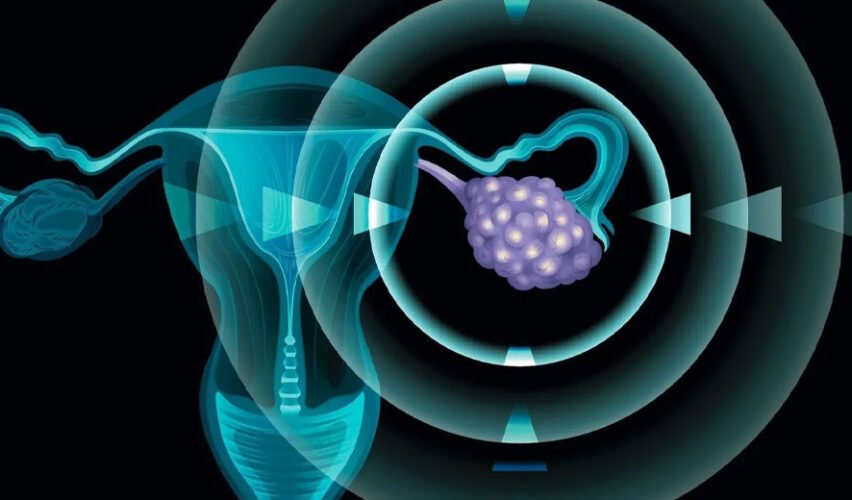Talking about women’s health should feel normal. Clear talk helps people notice changes, ask questions, and feel less alone. Low-grade serous ovarian cancer, often shortened to LGSOC, needs that kind of open talk. It is rare. It can be stubborn. Many people have never heard of it. Setting aside a day to focus on it gives everyone a simple way to learn, support, and act.
What low-grade serous ovarian cancer is
Ovarian cancer starts in the ovaries, which sit low in the belly and help with hormones and eggs. “Low-grade” describes how the cancer cells look and how fast they tend to grow. It does not mean the disease is easy. LGSOC usually grows more slowly than other ovarian cancers, yet it can still spread and needs strong, steady care. Many patients are younger adults. Some first learn about it in their 20s, 30s, or 40s. Because it often moves slowly, early signs can blend into daily life. That is one reason awareness matters so much.
Why an awareness day changes things
A single date on the calendar brings focus. It lets patients, families, doctors, teachers, and neighbors share one common goal: learn the basics and support those who are dealing with it. For anyone new to this topic, it is important to understand LGSOC day and what it offers—simple guides, ways to join events, and points of contact for support. Having one trusted place to start cuts through confusion. It helps people find the words to talk with a doctor, a school nurse, or a friend. It also makes it easier for groups to plan local talks, set up fundraisers, or share real stories.
Signs to watch and why they get missed
Early symptoms can sound common. Ongoing bloating. Feeling full after small meals. Belly or back pain that hangs around. Needing to pee more often. Period changes that do not fit a usual pattern. These issues can come from many causes. That is why people wait. What matters is change that sticks. If a new pattern lasts for weeks, keeps getting worse, or feels different for that person, a check-up is wise. Writing down when symptoms show up can help. A short note in a phone or a small notebook can give a doctor a clearer picture. Only a medical team can test and explain what is going on, so guessing does not help.
How doctors figure it out
Care often begins with a talk about health history and symptoms. A pelvic exam may follow. Imaging tests, such as an ultrasound or CT scan, help show what is happening inside the belly. Blood tests may add more clues. If cancer is likely, a specialist plans the next steps. Sometimes surgery is used to confirm the type and learn the stage. Staging tells how far the disease has grown. That guides the plan for treatment and follow-up.
Treatment paths people may see
No single plan fits everyone. Care teams build a plan around the stage, past health, and goals. Surgery is common to remove as much cancer as possible. Other treatments may follow. Some patients use medicines that act on hormones because many LGSOC tumors respond to changes in hormone signals. Others receive drugs that target certain growth paths inside cancer cells. Chemo may be part of the plan for some, even though LGSOC can be less sensitive to it than other types. Clinical trials can also be an option. Trials test new ideas in careful steps to learn what helps and who benefits. The plan can change over time, based on how a person feels and what scans and tests show.
Follow-up is a key part of care. Regular visits, imaging, and blood work help teams spot changes early. Side effects need attention too. Good care looks at sleep, energy, pain, mood, and daily tasks. Small steps—steady meals, light movement as advised, and support for stress—can make each day easier during treatment and after.
Support that makes a real difference
A diagnosis does not only affect the body. It touches school, work, family roles, and friendships. Emotional support helps people stay steady through tests, scans, and long waits. Honest talk with a counselor, a nurse, or a support group can lower fear and bring back a sense of control. Friends and family can help with rides, meals, or childcare. Teachers and managers can adjust schedules when needed. These small actions add up. They show care without pressure.
Money stress is real for many families. Awareness days open doors to grants, travel help, and other aid. Patient groups often keep lists of programs that can help with bills, lodging near clinics, or time off for a parent who needs to be there during treatment. Asking a social worker at the clinic is a smart step; that person usually knows the fastest way to get help.
How teens and families can help
No medical degree is required to make a difference. Learn the signs and share them with friends and relatives. Offer to help set up a school event during the month of the awareness day. Invite a local nurse or doctor to give a short talk with time for questions. Share one clear post on social media that points to trusted resources and hotlines. If donations are possible, pick groups that support patients and fund research on rare ovarian cancers. Even small gifts help start pilot projects or keep a support line open.
Talking at home matters too. Parents can model calm, clear words about health changes and doctor visits. Teens can help younger siblings understand that asking for help is smart and brave. Families that speak openly about health build trust that lasts.
Clearing up common myths
“Low-grade means it is not dangerous.”
False. “Low-grade” is a lab term about how the cells look and grow. Care still needs to be serious and steady.
“Only older adults get ovarian cancer.”
Not always. LGSOC can affect younger adults as well. That is why broad awareness matters.
“If chemo is not the best match, nothing will help.”
There are other options. Surgery, hormone-based care, targeted drugs, and clinical trials all play a role in many plans.
“Talking about cancer is too heavy for school.”
Clear talk saves time and lowers fear. It gives students the language to support family and friends and to seek help when something feels off.
Key takeaways and next steps
LGSOC is rare, and that makes awareness even more important. Knowing the common signs, keeping track of changes, and seeing a doctor when symptoms persist can lead to faster answers. A focused day on the calendar gives everyone a simple way to learn, speak up, and support. Patients need steady medical care and steady emotional care. Families, schools, and friends help by showing up, listening, and keeping plans flexible. Small actions create real change. Share what you learn, ask questions, and help build a community where people feel safe to seek care and find support.



